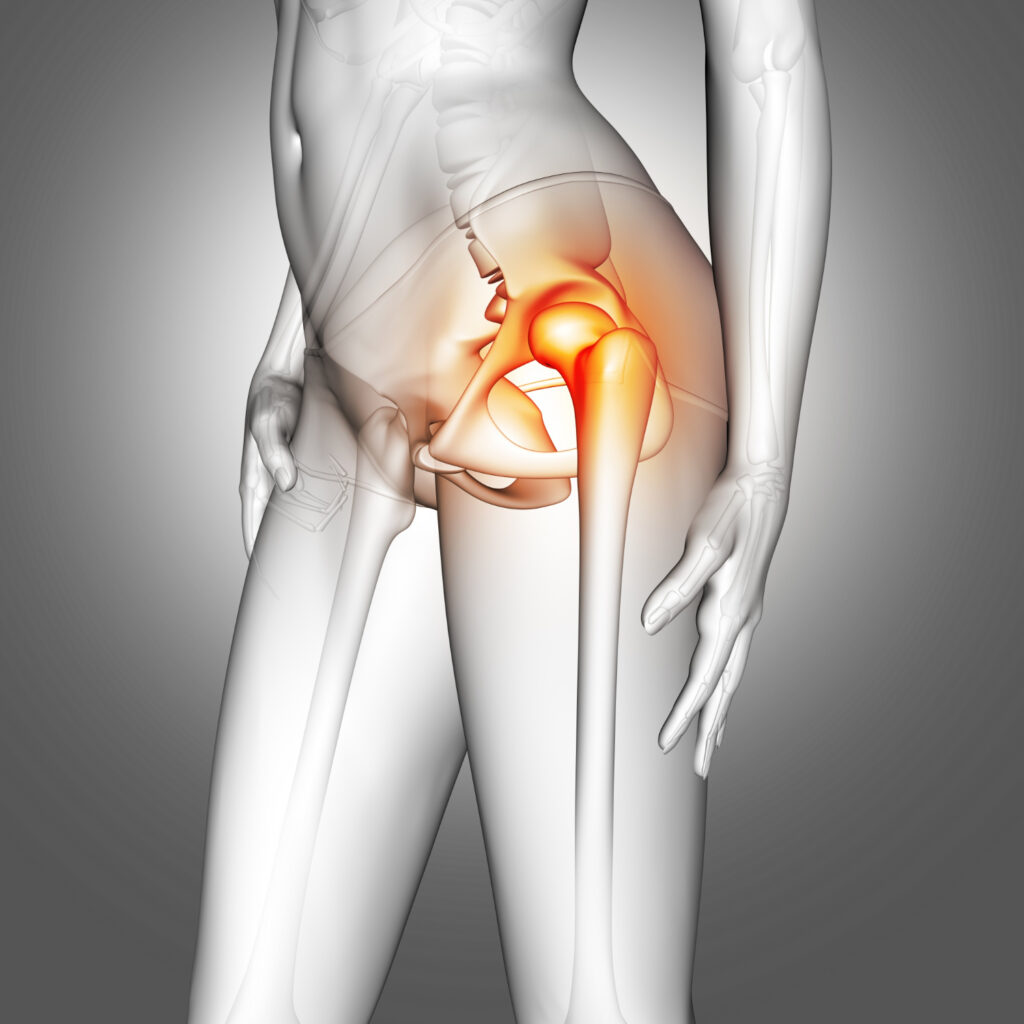Hip pain can be difficult to manage and can range from mild intermittent pain to debilitating discomfort. Hip pain has a wide range of possible causes. The most common causes of hip pain are arthritis, labral tears, bursitis, tendinitis, and tendon tears.
Understanding the origin of your hip pain is the first step in finding relief and avoiding further damage here is the top 5 Causes Of Hip Pain.
Arthritis
This is one of the most common causes of hip pain. It occurs when the cartilage that covers and cushions the bones wears down over time. The symptoms can vary greatly and often are felt as swelling, stiffness, and hip pain with motion and ambulation. Osteoarthritis is the most common type of arthritis and typically affects people over 50 years old. Rheumatoid arthritis is an autoimmune disorder that causes inflammation to occur in the joints, which can also lead to hip pain. Arthritis is often treated with a combination of NSAIDs, resting, physical therapy and in some instances may benefit from an injection to ease the inflammation. When hip arthritis becomes severe, often a hip replacement is required to improve function and eliminate pain.
Labral Tears
The labrum is the tissue bumper that surrounds the socket of the hip joint. The labrum can be damaged from normal activity over a lifetime or from an injury especially in younger athletes. Labral pain is often felt as groin pain that is made worse with squatting, twisting and turning, sitting for long periods of time, or lifting your leg into and out of a car. There can also be clicking sensations in the hip otherwise known as “mechanical” symptoms. Labral tears can be treated with medications, physical therapy, and NSAIDs, however a certain percentage of patients require labral repair surgery to resolve their pain and improve their function.
Bursitis
This occurs when the fluid-filled sac that rests over your hip bone, otherwise known as the greater trochanter, becomes inflamed. This typically happens as the tendon that overlies the bone (the iliotibial band or “IT” band) rubs along the bone with usual activity or with sleeping on that side at night. Bursitis can be exacerbated by activities such as running, sports, or stairs. Often bursitis is improved with a cortisone injection and stretching exercises for the IT band. In rare circumstances surgery is required to remove the inflamed bursa and lengthen the tight IT band tendon.
Tendonitis
Tendonitis occurs when a tendon becomes inflamed due to overuse. Tendonitis often affects athletes who participate in sports that require repetitive motions such as running or cycling, but it can also affect those who perform tasks like heavy lifting on a regular basis. There are many tendons around the hip that can become inflamed but the most common tendons affected are the hip flexor (iliopsoas) tendon, abductor (gluteus medius) tendon, and upper hamstring tendons. Symptoms of tendonitis typically include tenderness at the affected area with pressure and pain when activating the muscle associated with that tendon.
Tendon Tears
Tendon tears typically occur either with repetitive use over time or a trauma such as a fall or “pulling” injury. Degenerative tears are tears that happen over a lifetime of use and can range from partial detachment to complete detachment of a tendon from the bone insertion. Acute falls or injuries often result in a complete tearing of the tendon from the bone with retraction away from its insertion site. Depending on the location and severity of the tear and the age and activity level of the patient, surgical repair of a tendon tear might be required to regain full function.
How do I know if my hip pain is serious? Here is the Top 5 Causes Of Hip Pain
Hip pain can be a significant hindrance to a patient’s lifestyle. Most of us have experienced hip pain at some point in our lives. It can be mild and relatively easy to ignore. But how do you know when your hip pain is more serious than just a minor ache?
If you’re experiencing any of the following symptoms, it’s time to seek medical attention for your hip pain:
• Pain that persists even after resting or taking over-the-counter medications
• Severe swelling in the area around the hip joint
• Inability to put weight on one leg without experiencing pain
• Clicking or popping sensations with the pain while moving
• Stiffness or limited mobility
Should I be worried if my hip hurts?
It’s difficult to give a definitive answer without knowing more about the specifics of your situation, but in general, yes, you should be worried if your hip hurts. Pain is usually a sign that something is wrong, and since your hip plays a critical role in supporting your body weight, any pain or discomfort in that area should be taken seriously.
There are many potential causes of hip pain so it’s important to see a doctor if you’re experiencing any unusual symptoms or pain in that area. Early diagnosis and treatment are essential for preventing further damage and ensuring a full recovery.
Final thoughts
Knowing the cause of your discomfort is essential to accurately diagnosing and effectively treating it. If you’re experiencing chronic hip pain, it’s best to consult with an Orthopaedic Surgeon in Long Island who can determine what’s causing it and create an appropriate treatment plan for you.
Contact Dr. Capogna @ 516-627-8717 or request an immediate appointment at https://www.orthopaedicassociatesmanhasset.com/request-an-appointment/.

